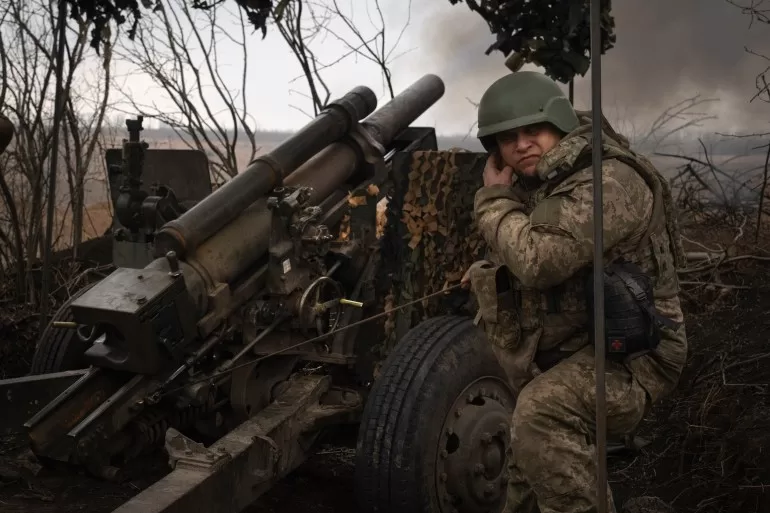General tells parliament Russian forces outnumber Kyiv’s soldiers up to 10 times on the battlefields in the east.
The bill, which dropped a set of draconian draft-dodging penalties that sparked public outrage, was backed by the armed forces.
Before the bill’s passage on Thursday, a general told parliament that Russia has up to 10 times more soldiers than Ukraine on battlefields in the east.
“Pass this law and the Ukrainian armed forces will not let down you or the Ukrainian people,” General Yuriy Sodol told lawmakers.
“We are maintaining our defences with our last strength,” he said as lawmakers stood up and applauded more than a dozen commanders who attended the session.
Military analysts have said Ukraine’s armed forces need to address acute problems with manpower and their artillery shell shortage as better-equipped Russian forces make advances in the east.
“The enemy outnumbers us by seven to 10 times. We lack manpower,” said Sodol, who commands Ukrainian forces in the Kharkiv, Donetsk and Luhansk regions in eastern Ukraine.
The bill passed with a majority of 283 votes in the 450-member parliament, Yaroslav Zhelezniak, a lawmaker for the Holos party, wrote on the Telegram messaging app.
The bill still needs to be signed by President Volodymyr Zelenskyy before it becomes law.

Draft-dodging penalties removed
The legislation aims to give the military a better indication of how many people it can call up and where they are located.
The bill gives Ukrainian men 60 days to update their personal data with military authorities. Until now, draft offices had to rely on sometimes incomplete and old data.
It also removes an array of far-reaching penalties for draft dodging that were proposed in an earlier draft, creating outrage. There have been thousands of cases of draft dodging during the war.
The bill also struck out an earlier clause on demobilising soldiers who had been fighting for 36 months, meaning that wartime military service remains open-ended.
Lawmaker Oleksandr Fedienko said the passage of the bill would send a “message to our partners that we are ready to retake our territory and we need weapons”. Ukraine is grappling with a slowdown in Western military assistance.

Maksym Zhorin, a deputy commander of Ukraine’s 3rd Assault Brigade, said the law would not lead to “miracles” on the battlefield. “Undoubtedly, it will bring a little more order and systematics in general to the issue of mobilization,” he said on television, adding it would not solve all the problems.
“Personally, I would make it much tougher and also continue to reduce the conscription age.”
Last week, Zelenskyy signed separate legislation into law to lower the conscription age to 25 from 27. Parliament is considering another bill to allow convicts serving suspended sentences to fight in the army. Lawmaker Mariana Bezuhla criticised the bill on Facebook, saying: “They made it as soft and confusing as possible, and months were lost.”
It took parliament several months to put the latest bill to a final vote this week as politicians accused each other of drafting poorly worded amendments and lacking the political will to approve unpopular changes.
More than 4,000 amendments were submitted after the first reading in February. Deputies rejected most of the amendments and significantly watered down initial proposals on punishments for those trying to evade the draft.
